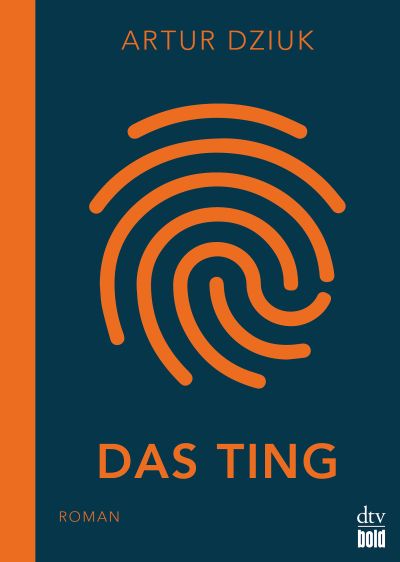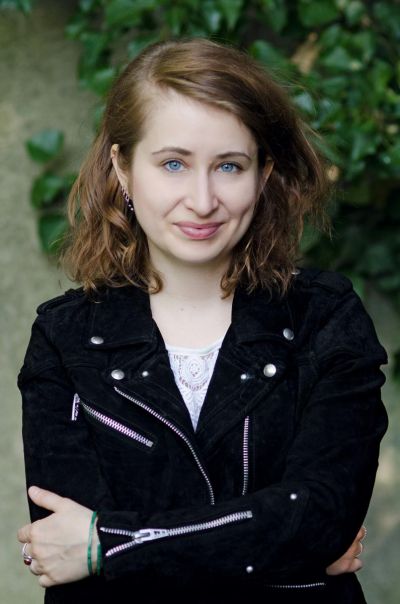Artur Dziuk

The novel is about an optimisation app, the “Ting”. It helps its users with all kinds of life decisions, big and small. The app is connected to the user’s body via sensors and collects data on hormone levels, heart rate and body temperature. At the same time, it can scan the environment and access all the information on the Internet. The Ting is constantly learning and is designed to help its users identify and follow the best courses of action. And the app does this rather persistently. Linus, the inventor of the Ting, eventually realises this, too. Together with his fellow student Adam, who has Polish roots, the hacker Niu and the entrepreneur’s son Kasper, who has a background in business administration, he founds a start-up. At the same time, the Ting steadily gains more and more power over everyone involved. Because: to be able to market the app convincingly, they have to believe in it.
Artur Dziuk researched the start-up scene for his novel. He read and conducted interviews with founders and came across a frequently recurring motif: the idea of being able to update oneself into the best version of oneself. The book was largely very well received. Deutschlandfunk radio reviewed “Das Ting” as a thought-provoking, entertaining and exciting novel, NDR’s Kulturspiegel spoke of a “successful debut” and the Tagesspiegel newspaper praised Dziuk for “elegantly blending science fiction and business thriller” in his novel.
Dziuk intends to explore a completely different topic in his next project, and is also looking for a new narrative style. The author believes that every topic demands a distinct language: “I want to be stylistically versatile and capable of learning so that I can get as close to the topic as possible.” In addition to Gombrowicz and Lem, his influences include American novelists such as DeLillo, Pynchon, David Foster Wallace and British writer Zadie Smith. But Dziuk also admires contemporary Polish authors such as Olga Tokarczuk and Szczepan Twardoch. Among German-language writers, he cites Kehlmann and Ernst-Wilhelm Händler in particular.
Dziuk is irritated when he is labelled a “Polish author”: “I may have been born in Poland and I stand by my heritage. But I think, dream, speak, and write in German.” Nevertheless, Dziuk does not want to be called a “German author” either, because he also considers this term to be an unacceptable simplification. He wonders what is gained by categorising people as “German” or “Polish”, as he feels that this does not tell people anything about him and just invites stereotypes. “If there has to be a national label”, says Dziuk, “then Polish-German author.”
Asked about his Polish homeland, Dziuk says: “Unfortunately, I know too little about it. As a child and teenager, my relationship with Poland was somewhat clouded.” In contrast to wealthy West Berlin, the crumbling Polish industrial landscape and rising poverty had a depressing effect on the young Dziuk. He was also greeted by other children with “The Kraut is here”, whereas in Germany he sometimes had to listen to jokes about Poles. “While I tried to be as German as possible as a child in Berlin, I neglected my Polish heritage”, says the author. In addition to his new novel, about which Dziuk does not yet want to reveal anything, he has another project in the pipeline: a longer stay in Poland to get to know the country of his birth and his family better.
Anselm Neft, August 2020
The author’s homepage: www.arturdziuk.de



